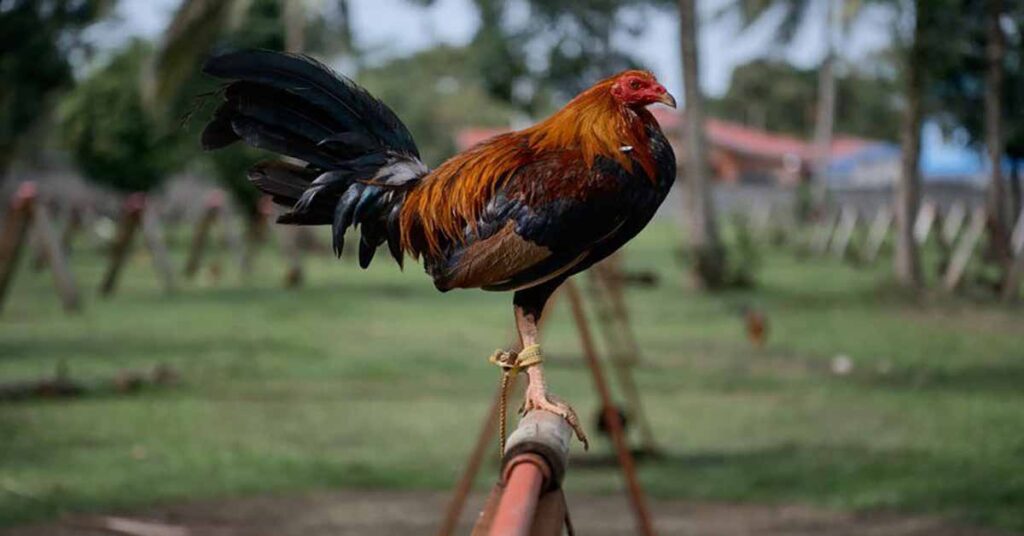Gamefowl Harvesting, Hardening, and Cording
September 21, 2023
Conclusion
In conclusion, harvesting, hardening, and cording gamefowl are integral parts of preparing these birds for the world of competitive cockfighting. However, it is vital to approach these practices with care, responsibility, and adherence to the law, while also prioritizing the well-being and humane treatment of the gamefowl throughout their lives.

Gamefowl, known for their strength, agility, and fierce nature, have a long history of being bred for competitive sports like cockfighting. Properly harvesting, hardening, and cording gamefowl are crucial steps in preparing these birds for the rigors of the cockpit. This article will guide you through the essential practices involved in these processes while emphasizing the importance of ethical treatment and adherence to regulations.
Harvesting Gamefowl
Harvesting refers to the process of selecting gamefowl for competition. It’s essential to pick birds with the right combination of genetics, temperament, and physical attributes. Here are the key considerations for successful gamefowl harvesting:
1. Genetics:
- Select birds with a lineage known for their fighting ability and winning track record.
- Pay attention to traits like aggression, stamina, and intelligence in their ancestry.
2. Physical Attributes:
- Choose gamefowl with a strong and well-proportioned body.
- Check for good bone structure, balanced wings, and well-developed musculature.
3. Temperament:
- Observe the bird’s behavior around other gamefowl to assess its fighting spirit.
- Look for signs of fear or aggression that could affect its performance.
4. Age and Conditioning:
- Harvest gamefowl when they are in prime condition, typically between 12 and 18 months old.
- Ensure they have undergone proper conditioning and are in peak physical form.
Hardening Gamefowl
Hardening is the process of preparing gamefowl physically and mentally for combat. This involves conditioning and training to build strength, stamina, and aggression. Here’s how to do it properly:
1. Conditioning:
- Maintain a balanced diet rich in protein and essential nutrients.
- Provide regular exercise to develop muscle and endurance.
- Ensure that the bird’s weight is optimal for its fighting class.
2. Sparring:
- Gradually introduce the gamefowl to controlled sparring sessions with other birds.
- Monitor their progress and adjust training accordingly.
- Avoid excessive or brutal sparring, as it can lead to injuries and poor performance.
3. Mental Preparation:
- Mimic the sights and sounds of a cockpit to desensitize the bird to the fight environment.
- Use positive reinforcement techniques to build confidence and aggression.
Cording Gamefowl
Cording involves attaching a short cord or tie to one leg of the gamefowl. This cord serves as a safety measure during cockfights, allowing handlers to control the birds and prevent prolonged and dangerous fights. Here are the steps to cord gamefowl properly:
1. Selecting the Cord:
- Use a soft, durable material like nylon cord.
- Ensure the cord is the appropriate length for the type of competition, typically around 2-3 feet.
2. Attaching the Cord:
- Gently tie the cord to the bird’s leg, just above the spur.
- Ensure the knot is secure but not too tight, as this can harm the bird.
3. Training with the Cord:
- Gradually introduce the gamefowl to the cord by allowing it to walk and exercise with it attached.
- Monitor the bird’s behavior and ensure it becomes accustomed to the cord without distress.
Ethical Considerations and Regulations
It is essential to emphasize ethical treatment of gamefowl and adherence to local regulations. Cockfighting is illegal in many places, and even where it is legal, there are often strict rules governing the sport. Here are some critical ethical considerations:
Responsible Ownership: Ensure that gamefowl are treated with respect and given proper care throughout their lives, not just during training and competition.
Legal Compliance: Know and adhere to all local, state, and national laws regarding cockfighting, including licensing, permits, and age restrictions.
Humane Treatment: Avoid any practices that cause unnecessary harm or suffering to the birds, such as overtraining, excessive sparring, or cruelty.
Retirement and Aftercare: Consider the welfare of retired gamefowl and provide them with suitable accommodations and care.
